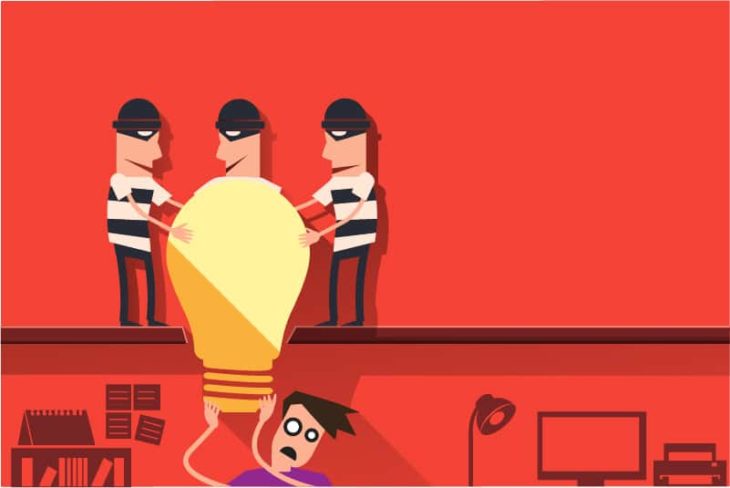One of the most common mistakes that new bloggers or business owners make is to use images they’ve found online without the proper licensing or attribution. Just because you found an image on the Internet does NOT mean it’s free for you to use! Because the images you see on the Internet have been copyrighted, it is essential that you take the time to look for images that do not infringe on the rights of the author.
What Is Copyright and When Does It Take Effect?
Copyright is a term used to refer to a bundle of federal laws in the US that have been established to protect the original works of creators. Copyright applies immediately and silently to ALL WORKS—including those photos that you found on your latest Google search.
Because copyright is considered an AUTOMATIC RIGHT in the US, that means that authors or creators are not required to file for licensing to establish exclusive rights their work. Although an author is required to register their copyright before pursuing a party for infringement, there are several protections that you should be aware of.
These protections are listed in Section 106 of the Copyright Act, which states that “the owner of a copyright has the Exclusive Rights to:”
- Reproduce or approve the reproduction of the work in copies
- Create derivative works based on the original copyrighted material
- Sale or distribute copies the work or its derivatives
- For performance-oriented works, the author retains the right to perform (or authorize performances) of the work and/or its derivatives.
- In the case of music or recordings, the author retains the rights of performance AND play.
In addition to these more general rules, there are additional protections included in Section 106A of the Copyright Act that apply specifically to “works of visual art” — that includes those unattributed photos you were thinking of posting on your business’s site.
Additional protections under Section 106A:
- The right of an artist to claim authorship of their work
- The right of an artist to prevent the use of their name being attributed to any work that was not created by the author
- The right of an artist to prevent the use of their name as the author of an intentionally distorted, mutilated or prejudicially modified version of that work which may harm the original author’s “honor or reputation.”
- The right of an artist to prevent the destruction of their work.
Exceptions to Exclusive Rights: Fair Use
As you can see, Copyright and licensing can get complicated and messy. Fortunately, there is a silver lining called ‘Fair Use’ that allows content aggregators and disseminators to publish copyrighted works for a specific set of ‘Fair Use’ purposes. The rules for Fair Use are outlined in Sections 107 and 108 of the Copyright Act, and help to provide a framework for establishing limitations on the exclusive rights that are automatically attributed to the creator of the content you wish to use.
In this section of the law, the Copyright Act acknowledges that sometimes, reproducing a Copyrighted work can serve a public purpose. Those ‘Fair Use Exceptions include use or reproduction of the work for purposes of:
- Criticism
- Comment
- News reporting
- Teaching
- Scholarship
- Research
Don’t Let Licensing Bog You down!
At Mvestor Media, we are experts in navigating the world of licensing and design optimization so you don’t have to be! We provide our clients with high quality, original website designs with properly licensed and created content EVERY TIME. Check out our portfolio or contact us today to see which options are best for you and your business!

